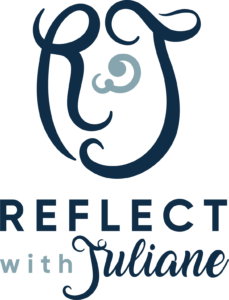Emotional Response: Cultivating your inner resources
Instead of being a perfectionist or having a fixed mindset, cultivate a growth mindset. Embrace challenges as opportunities to learn and grow, rather than seeing them as threats to your competence. This shift in perspective can significantly impact how you navigate stressors in the workplace.
Recognise anxiety as a natural response to stress and learn strategies to manage it effectively. This may include mindfulness techniques, deep breathing exercises, or seeking professional support. Understanding and addressing anxiety is crucial for maintaining mental well-being in the workplace.
- Building Confidence and Overcoming Self-Doubt
Challenge self-doubt by celebrating your achievements and acknowledging your capabilities. Focus on your strengths and accomplishments rather than dwelling on perceived shortcomings. Building confidence is a gradual process, but it can transform how you approach challenges at work.
- Setting Healthy Boundaries
To avoid burning out, establish and maintain healthy boundaries between work and personal life. Learn to say no when necessary, prioritize self-care, and communicate your limits to colleagues and superiors. Balancing responsibilities is key to sustaining long-term well-being.
- Seeing Work as a Learning Opportunity
Shift your perspective on work by viewing it as a continuous learning opportunity. Every challenge or project is a chance to acquire new skills and knowledge. Embrace a mindset of growth and improvement, recognizing that your worth is not determined by perfection but by your commitment to learning.
- Strategies to Stay Calm and Respond
Develop strategies to stay calm in high-pressure situations. This may involve taking short breaks, practicing mindfulness, or having a calming ritual. Responding thoughtfully rather than reacting impulsively can contribute to a more constructive work environment.
- Develop Signs and Tools for Self-Calming
Create personalised signs and tools to calm yourself down during moments of stress. Remind yourself of your good intentions and efforts, especially when feelings of guilt or overreaction arise. Self-compassion is a powerful tool for managing emotional responses.
Strategic Response: Navigating Challenges Effectively
- View Challenges as Learning Lessons
Approach challenges and reactions from colleagues or superiors as learning opportunities. Instead of doubting yourself, inquire about what you can learn from these situations and interactions in the workplace.
- Be Proactive and Take Ownership
Proactivity and ownership empower you to work effectively and grow. Instead of waiting for solutions to come to you, actively seek opportunities to contribute and take charge of your professional development.
Resist the urge to immediately agree to new ideas raised by your manager or team. Take the time to reflect on the discussions and consider the implications. Thoughtful consideration prevents hasty decisions and promotes strategic thinking.
- Ask Questions in Response to Challenges or Criticism
When faced with challenges or criticism, ask questions to encourage others to explain their perspectives. It’s easier to be critical than constructive, so understanding the motivations behind critiques can lead to more productive discussions.
Regularly check in with yourself on areas for personal growth and improvement. During meetings or conversations, avoid changing your opinion on the spot; instead, reflect on your standpoint when you have the time and space to do so.
Conclusion
Managing workplace stress requires a multifaceted approach that addresses both emotional and strategic responses. By cultivating a growth mindset, implementing anxiety treatment strategies, building confidence, and setting healthy boundaries, you can enhance your emotional resilience. On the strategic front, viewing challenges as learning opportunities, being proactive, taking time to reflect, asking questions, and focusing on personal growth contribute to effective stress management. Remember, navigating workplace stress is a journey, and with the right tools and mindset, you can transform stressors into opportunities for growth and success in your career.




